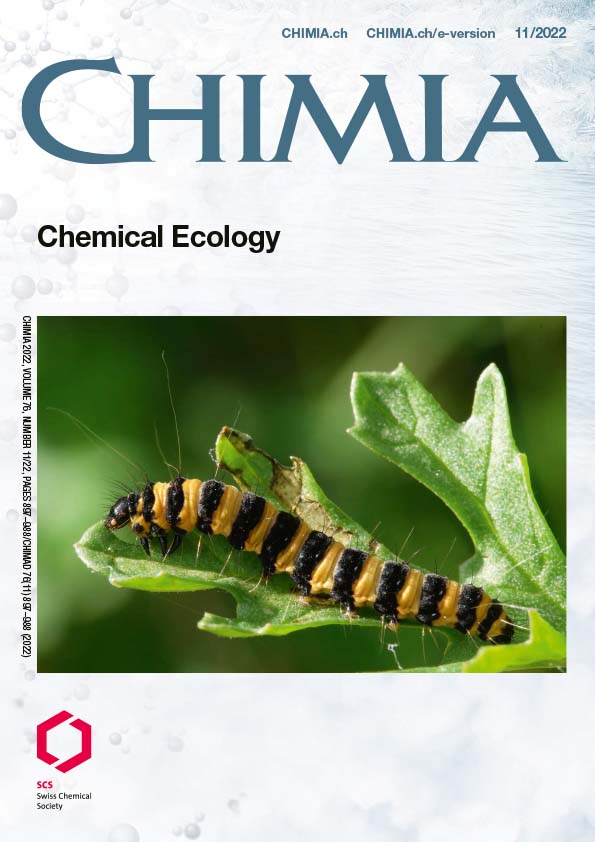The Chemistry of Plant-Insect Egg Interactions
DOI:
https://doi.org/10.2533/chimia.2022.914PMID:
38069786Keywords:
Egg-associated molecular patterns, Herbivory, Oviposition, Terpenoids, Volatile organic compoundsAbstract
Insect eggs deposited on plants constitute a threat that has led to the evolution of sophisticated defenses. The interactions between insect eggs and plants are governed by a diverse variety of chemicals that inform butterflies about suitable hosts, repel gravid females, alert plants about the presence of an egg, act as signal molecules to induce defenses, directly impair egg development, and indirectly attract egg parasitoids. In recent years, significant progress has been made on the chemical identification, perception and role of compounds associated with oviposition. Knowledge on the genetic basis of oviposition-induced responses is also accumulating. An emerging theme is that insect eggs are not passive structures on leaves but induce complex responses that result from million years of coevolution.Funding data
-
Schweizerischer Nationalfonds zur Förderung der Wissenschaftlichen Forschung
Grant numbers 310030_200372
Downloads
Published
2022-11-30
Issue
Section
Scientific Articles
License
Copyright (c) 2022 Philippe Reymond

This work is licensed under a Creative Commons Attribution 4.0 International License.
How to Cite
[1]
P. Reymond, Chimia 2022, 76, 914, DOI: 10.2533/chimia.2022.914.







